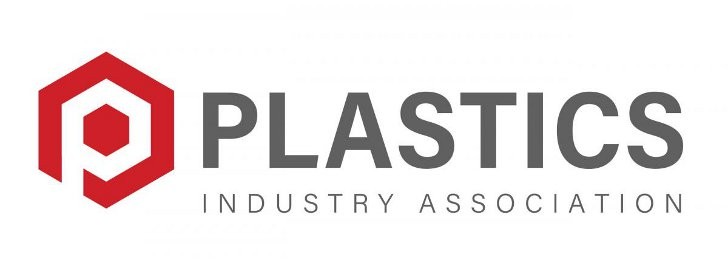SPI rebrands as Plastics Industry Association (PLASTICS)
PLASTICS to continue to support plastics recycling and sustainability initiatives

SPI recently announced the organization's rebranding. Now known as The Plastics Industry Association (PLASTICS), the Washington, D.C.-based organization remains focused on supporting the entire plastics supply chain, including recycling and sustainability.
According to PLASTICS' website, "We believe in working to make our members and the industry more globally competitive. We believe in advancing sustainability and being a good steward of resources. We believe in promoting plastics manufacturing. Since 1937 (as SPI) we’ve been providing education and advocacy to our members. Our committees and events such as our signature global tradeshow NPE, bring the boldest and brightest innovators, influencers and new technology together to create connections and showcase our industry.
Since 1937, SPI has been providing education to members and advocating on their behalf. According to the organization, "As the plastics industry has grown and evolved, our organization grows and adapts. To continue driving the plastics industry forward for decades to come, SPI, with our board of directors, made a decision to evolve our purpose-driven organization. That’s why we’re introducing our new brand—Plastics Industry Association. PLASTICS for short. It’s simple. It’s straightforward. And it defines who we are: a forward-thinking association that believes in plastics’ ability to improve people’s lives."
Recycling and Sustainability in plastics
According to the Plastics Industry Association, "plastics are a valuable resource that should always be recovered for their highest and best use. The Plastics Industry Association (PLASTICS) works with members and challenges companies to use more recycled content and design products so they can be more easily recycled.
PLASTICS helps businesses achieve their sustainability goals by:
- Promoting the use of recycled plastics in new products.
- Educating companies about how to recycle more and make their products easier for consumers to recycle.
- Demonstrating viable business models for collecting and recycling different types of plastic materials from locations like offices, hospitals and other areas.
- Incentivizing companies to eliminate waste and increase recycling.
- Measuring the amount of wasted recyclable plastic material.
- Collaborating with organizations including the Recycling Partnership, Keep America Beautiful, the Sustainable Packaging Coalition, the Environmental Protection Agency’s Trash-Free Waters Program and the Ocean Conservancy to fight pollution and make recycling easier and more available.
PLASTICS is involved in educating companies on how they can turn their waste into valuable resources, or eliminate waste altogether. Using the tools offered PLASTICS’ Zero Net Waste program, manufacturers learn how to:
- Divert up to 90% of their total waste away from the landfill.
- Avoid landfill costs and generate revenue by recycling.
- Engage employees in environmental efforts.
PLASTICS has also helped fund an effort led by the Sustainable Packaging Coalition to measure the availability of recycling in the U.S.Currently, 94% of U.S. residents living in communities with a population over 125,000 have recycling programs available to them.
- 92% of the U.S. population has access to plastic (PET) bottle recycling.
- This data tells the plastics industry where to focus its efforts on expanding people’s access to recycling.
- Our “End-of-Life Vehicle Project” explores the technical and economic feasibility of recovering plastics from vehicles at the end of their lives. We’re collaborating with partners to develop a method to recycle plastic parts from old, discarded vehicles and to create a recovery model to replicate across the U.S. and Canada. The goal of the project: ensure that no cars end up looking like this without first removing all of the plastic materials inside to be recycled.
PLASTICS works to make it easier to recycle all types of plastic packaging:
- The organization helps fund the Materials Recovery For the Future (MRFF) program — a research collaborative working to make all flexible plastic film (thin plastic bags and wrapping material) recyclable curbside and in residential recycling programs.
- The organization supports the technology that enables plastic pouches, bags, and film to be put in curbside blue bins.
PLASTICS is also leading a project to help hospitals recycle non-infectious plastics from clinical areas, to build a business case for hospitals to recycle plastics that they’d otherwise throw in the trash.
- There is a lot of recyclable plastic used in patient care areas such as trays, pitchers, basins, and blue wrap….but not all is recycled.
- We’re connecting hospitals with haulers and recyclers and finding buyers for recycled material recovered from patient care areas.
PLASTICS is also an inaugural funder of—and continue to support—The Recycling Partnership, a public-private partnership that focuses on improving and expanding access to recycling across the U.S.



